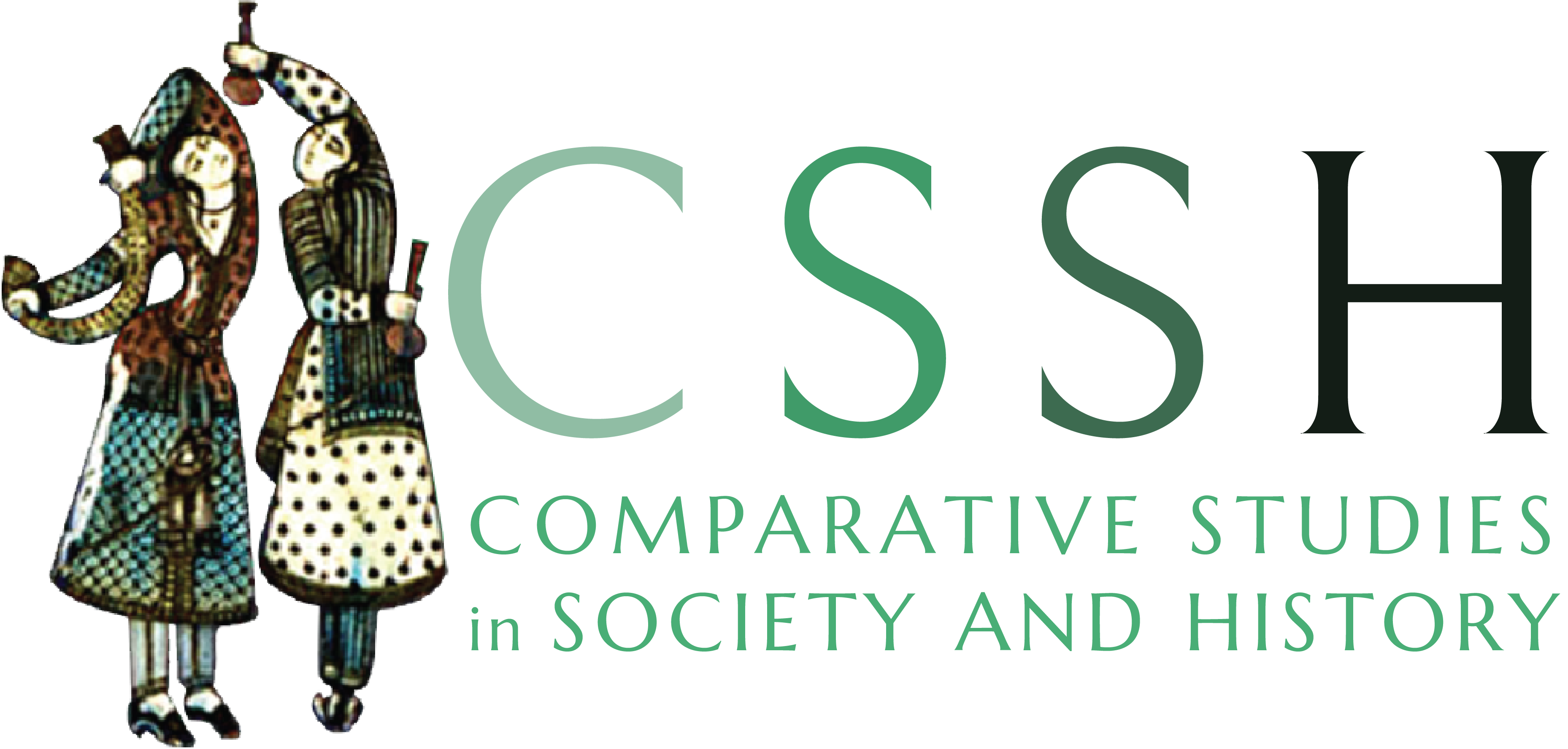Meet the authors of the 65-4 issue, October 2023.
Divya Cherian is an Assistant Professor in the Department of History at Princeton University. A historian of early modern South Asia with interests in caste, gender, and sexuality, she is the author of Merchants of Virtue: Hindus, Muslims, and Untouchables in Eighteenth-Century South Asia (University of California Press, 2023).
Richard Cole is an Associate Professor of Medieval European History at Aarhus Universitet. He has broad interests in the history and culture of the Middle Ages, especially in the Nordic region. His first book, The Death of Tidericus the Organist: Plague and Conspiracy Theory in Hanseatic Visby, was published in 2020 by the Viking Society for Northern Research. He has published articles in Exemplaria, Harvard Theological Review, Saga-Book, Scandinavian Studies, Viking and Medieval Scandinavia, and the Journal of English and Germanic Philology, amongst other venues.
Courtney Handman Courtney Handman is an Associate Professor in the Department of Anthropology at the University of Texas at Austin. She is the author of Critical Christianity: Translation and Denominational Conflict in Papua New Guinea (University of California Press, 2015). She is working on two projects currently: one on the communicative networks that shaped colonization and decolonization in Papua New Guinea, and the second on the ways in which artificial intelligence is transforming the link between language and humanness.
Artemy Kalinovsky is Professor of Russian, Soviet, and post-Soviet Studies at Temple University. His first book was A Long Goodbye: The Soviet Withdrawal from Afghanistan (Harvard University Press, 2011). His second, Laboratory of Socialist Development: Cold War Politics and Decolonization in Soviet Tajikistan (Cornell University Press, 2018), won the Davis and Hewett prizes from the Association of Slavic, East European, and Eurasian Studies. He is currently the Principal Investigator of Building a Better Tomorrow: Development Knowledge and Practice in Central Asia and Beyond, a project sponsored by the European Research Council and based at the University of Amsterdam. The project studies the legacies of socialist development in contemporary Central Asia to examine entanglements between socialist and capitalist development approaches in the late twentieth century.
Sarath Pillai is a Postdoctoral Research Fellow at the Center for the Advanced Study of India (CASI) at the University of Pennsylvania. He received his Ph.D. in History with distinction from the University of Chicago. His first book project, “Federal Futures: Imagining Federation, Constitution, and World in Late Colonial India,” is an intellectual and global history of federalist ideas in late colonial India, their rise and fall, and imagined and curtailed futures. He was a Fellow at the Hurst Institute in Legal History at the University of Wisconsin Law School, and the Center for International Social Science Research (CISSR) at the University of Chicago. His writings have appeared in peer-reviewed and public forums such as Law and History Review, Archives and Records, Los Angeles Review of Books, Economic and Political Weekly, Scroll.in, the Diplomat, the New Rambler, Hindustan Times, andthe Indian Express.
Tasha Rijke-Epstein is Assistant Professor of History at Vanderbilt University. She received a Ph.D. in Anthropology and History from University of Michigan in 2017. Her book “Children of the Soil: The Power of Built Form in Urban Madagascar” is forthcoming with Duke University Press (Fall 2023). Her work has appeared in numerous venues, including Journal of African History, History and Technology, and Africa.
Robert P. Weller is Professor of Anthropology at Boston University. His most recent collaborative work with Keping Wu includes Religion and Charity: The Social Life of Goodness in Chinese Societies (co-authored with C. Julia Huang, Cambridge, 2018). Their edited volume It Happens among People: Resonances and Extensions of the Work of Fredrik Barth (Berghahn, 2020); and “Overnight Urbanization and Changing Spirits: Disturbed Ecosystems in Southern Jiangsu” (Current Anthropology, 2021). His latest work on silence has appeared as “Respecting Silence: Longing, Rhythm, and Chinese Temples in an Age of Bulldozers” (History & Anthropology, 2020) and “Censorship, Foreclosure, and the Three Deaths of Fengzhen” (HAU: Journal of Ethnographic Theory,2021).
Keping Wu is Associate Professor of Anthropology at Duke Kunshan University. In addition to the collaborative work with Robert P. Weller (see his listing above), her most recent work includes “Innovative State and Local Variations: Governing Religions in Greater Suzhou” (in Handbook on Local Governance in China: Structures, Variations, and Innovations, edited by Ceren Ergenc and David S. G. Goodman, 2023); and “From Cloud Tomb-Sweeping to Cloud Ethnography: Alternative Means of Mourning and Research during COVID-19 in China” (Italian Journal of Ethnography and Qualitative Research, 2020).
Maximilien Zahnd is a Lecturer in Law at the University of Sussex and a research fellow at University College London. He earned his J.S.D. from University of California, Berkeley School of Law and has held postdoctoral positions at the University of Oxford and New York University School of Law. His work has appeared in Law & Social Inquiry.
Harriet Zurndorfer is an historian of Ming-Qing China and affiliated with the Leiden Institute for Area Studies at Leiden University in the Netherlands. She is the author of Change and Continuity in Chinese Local History: The Development of Hui-chou Prefecture 800–1800 (Brill, 1989); and China Bibliography: A Research Guide to Reference Works about China Past and Present (Brill, 1995). She has published more than two hundred learned articles and reviews. From 1991 to 2000, she was editor-in-chief of the Journal of the Economic and Social History of the Orient. She is founder and editor of the journal Nan Nü: Men, Women and Gender in China, published since 1999. She is also editor (with Matthew S. Gordon and Richard W. Kaeuper) of volume II of the four-volume Cambridge World History of Violence (Cambridge University Press, 2020). Currently she is a participant in the French/Portuguese research project “Mobilities, Communities, and Environments in and around the Asian Oceans/Seas (1560–1700),” based in Paris and Lisbon.


